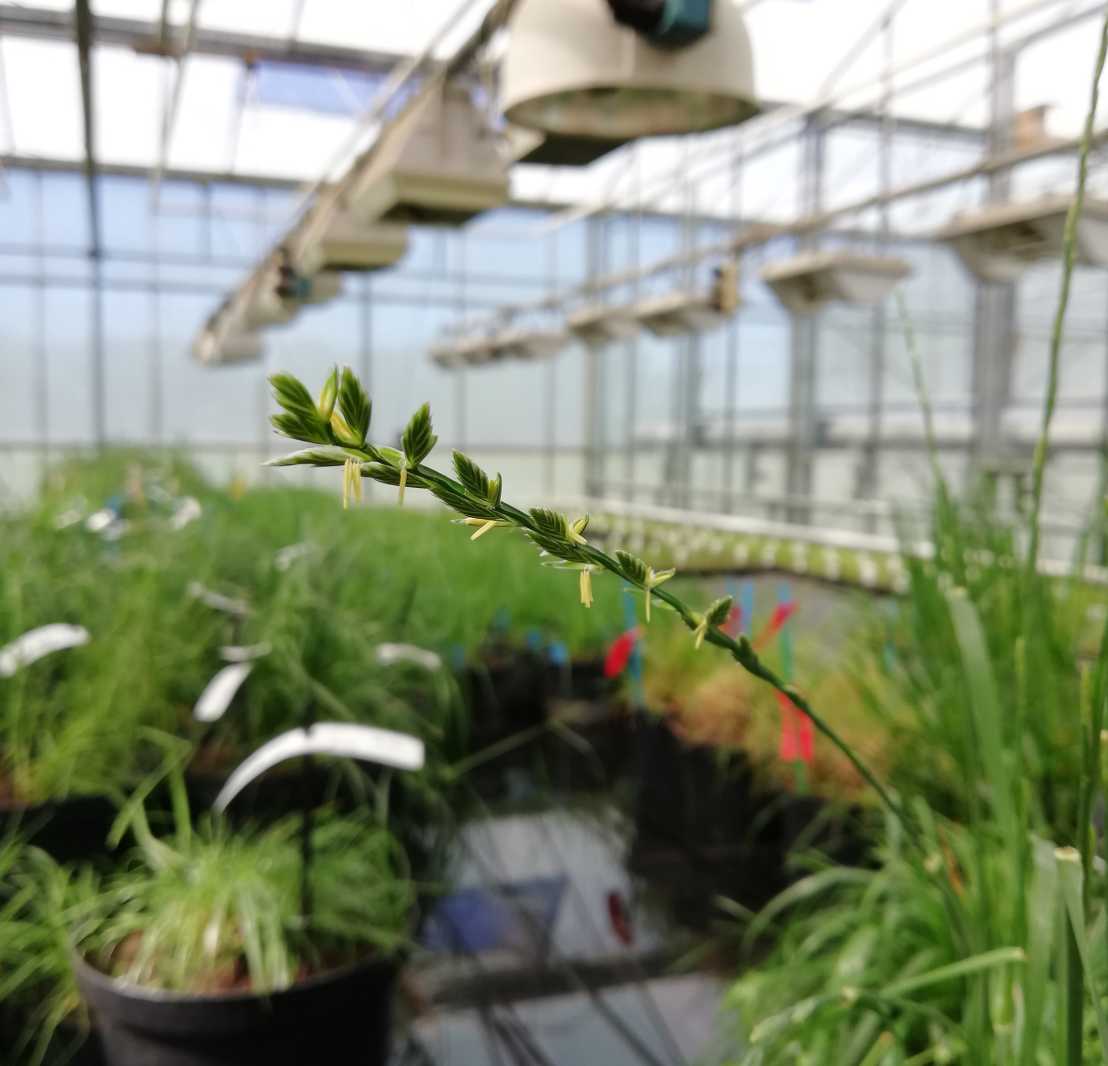Towards gene identification for self-compatibility
A fine-mapping approach further elucidates the genetics underlying self-compatibility in perennial ryegrass.

To control reproduction and their mates, plants have evolved different strategies. Self-incompatibility (SI), preventing self-pollination, is one of them. The pollen-stigma recognition of SI has been studied for many years and is known to be governed by two loci in the grass family. However, SI can also be detrimental for a plant when there is a limited number of mating partners around, for example. Therefore, in some rare cases, SI is not ruling the pollination compatibility anymore, despite the two-locus system being present and functional. This case is referred to as self-compatibility (SC).
In a research project in collaboration with Iowa State University and Deutsche Saatveredelung AG, we have fine-mapped a previously identified SC source in perennial ryegrass (Lolium perenne L.). Using more than 2,000 additional individuals from a F2 mapping population, as well as recently established genome sequence resources, novel markers were designed in order to map additional recombination events at the SC locus. We were able to narrow down the region co-segregating with SC to 0.26 cM, representing approximately 3 Mb of physical sequence and containing 57 genes.
With this work, we have identified promising candidate genes, on the basis of their annotation and function in other plants or biological systems. More work is on the way in order to pinpoint the gene responsible for SC in this population. This will then allow to better understand SC but also SI, and to apply this knowledge towards hybrid breeding in forage grasses.
Citation:
Cropano C, Manzanares C, Yates S, Copetti D, Do Canto J, Lübberstedt T, Koch M and Studer B (2021) Identification of Candidate Genes for Self-Compatibility in Perennial Ryegrass (Lolium perenne L.). Frontiers in Plant Science 12:707901.
external pagehttps://doi.org/10.3389/fpls.2021.707901call_made
